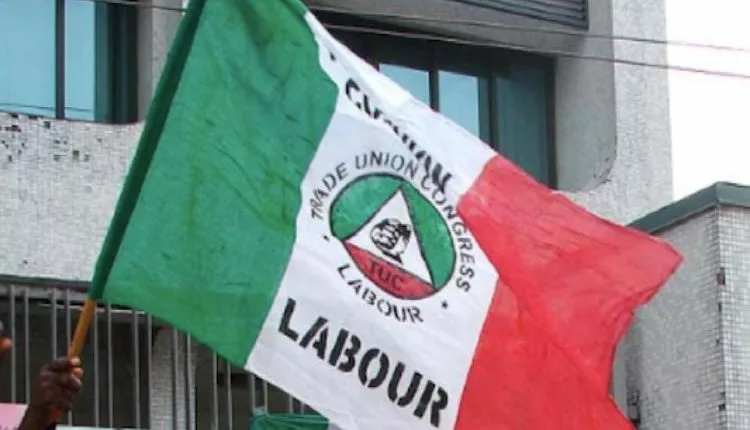Since the inauguration of the President Bola Ahmed Tinubu administration a year ago, the Labour movement and the federal government have remained entangled in a game of wits on the issue of whether workers deserve a minimum wage or a living wage.
The federal government roiled the hornet’s nest with its whimsical approach to the issues of withdrawal of fuel subsidy and floating of the national currency – the Naira. Adopting those policies, so early in the life of the administration, plausible as they were, raised issues of not-too-sufficient intellectual input in their formulation. Otherwise, the government ought to have made arrangements to manage the unintended fallouts such as the inflationary spiral and the negative impact on the nation’s cost of living.
The authorities, in our opinion, also ought to have anticipated the reaction of wage earners as represented by Labour who are always on the lookout for telltale signs of exploitation on the part of political leaders. Without warning, and as a result of those policies, the living standard in the country went into a tailspin and in the process, the take home pay that, in the best of times, never took anybody home, became a source of anguish and nightmare for those who rely on it.
In such situations, the National Labour Congress (NLC) and others like Trade Union Congress (TUC) are looked up to by the workers to fight their cause. The labour leaders did not disappoint as they took up the gauntlet in defence of their members who suddenly were immersed in debilitating hardship and suffering. Because the issue has to do with survival, the tendency to be emotional is often resorted to. And this, sadly, in a matter that requires clear thinking and realistic assessment of available options.
In our considered opinion, Labour seems to focus excessively on salaries and wages as the only way out of this matter that has become perennial. Anytime there is inflation or other hiccups in the economic sphere, there appear to be a fixation on an enhancement in the pay structure as if it is a magic wand ready to be deployed to restore normalcy at the snap of a finger. Overtime, it has proved not to be.
This newspaper has remained consistent in its argument on this page that wage increase, as a reflection of the understanding by employers in both public and private, that workers deserve a good life, is ultimately desirable. However, we also insist that much as it is a necessary condition for the amelioration of the nagging challenges that living has become in the country, at least by the perception of wage earners, it is not altogether sufficient to bring a lasting solution to the endless struggles Nigerians are confronted with in spite of the abundance of God-given resources.
From media reports, Labour is demanding a minimum wage of N497,000 per month. Government thinks that it is unrealistic. We agree. In our view, it sounds tellingly unserious. It certainly raises parody to an art form. But we may, to a certain extent, excuse Labour considering the life of debauchery and wasteful spending that has become the hallmark of the ruling political elite. On the other hand, government’s offer of N60,000 is too simplistic and insensitive. There is a penchant on its part to resort to austerity measures when matters affect the welfare of the ordinary Nigerian.
Putting these two extremes in perspective, this newspaper is persuaded to suggest a change of attitude and policy on the part of the government and a revisit to the approach to finding an acceptable figure as wages for the pauperised workers by Labour.
In our opinion, the government ought to concentrate on efforts to bring down the inflationary trend that is scaring the wits out of Nigerians to whom life has become a drudgery, deprived of quality and essence. It must, as a matter of national urgency, tackle the security situation in the country because it is the major cause of food insecurity in the land. Remove food from hardship and poverty, the rest can be effectively managed.
Furthermore, in our view, the government must tone down the cost of governance, bring to manageable level the cost of social infrastructure such as transportation, housing, health, electricity and other forms of energy that power the economy as well as reduce the overarching emphasis on taxation as the only means of internally generated revenue (IGR). For most people in the country, falling sick has become a nightmare of its own because of the outrageous cost of healthcare facilities. Today, Nigerians pay electricity bills and still live in darkness. For those who can afford generating sets, the cost of fuel discourages them from putting them on.
If the government can meaningfully achieve these, and Nigerians have affordable food, housing, cheap public transportation and accessible healthcare services, the heat generated by discrepancies in the earnings of political office holders and the ordinary citizens, the controversy they instigate, may become academic.
These should be the focus of any labour leadership that is worth its price in silver, a leadership that strips itself of emotions and not given to showboating, not taking to lazy and easy way out of a very important matter. Because that is what concentration on wages and salaries as the only way of solving problems workers experience has become.





